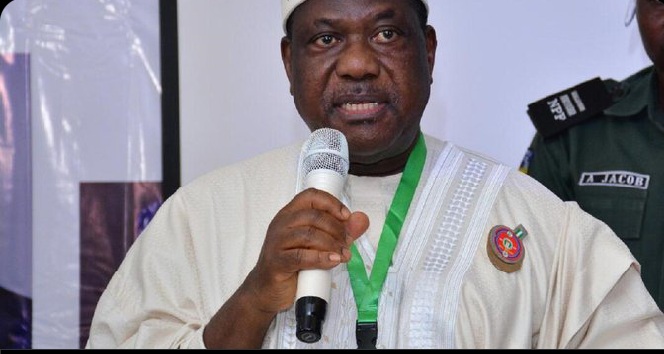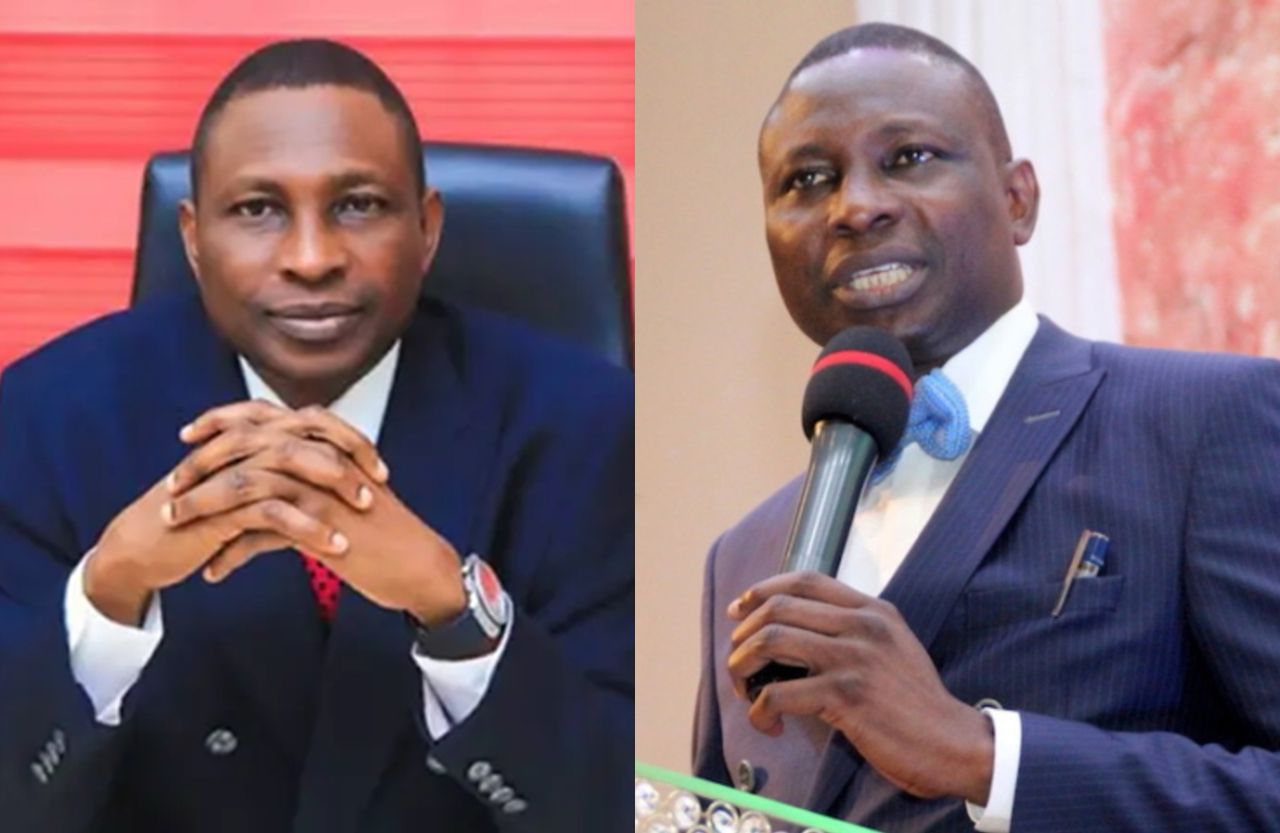
SGF George Akume Declares Benue Killings Driven by Greed, Not God or religion

In a chilling revelation that cuts through the smokescreen of sectarian assumptions, Secretary to the Government of the Federation (SGF), Senator George Akume, has declared that the unrelenting violence plaguing Benue State is not rooted in religious animosity but rather in economic ambition. As the body count rises and families continue to bury their dead, Akume’s words cast a disturbing light on a crisis many have misunderstood for too long.
The SGF, himself a son of Benue, did not mince words in his Monday statement issued from Abuja, where he decried the brutal killings as “disheartening and utterly condemnable.” His message, however, carried more than just grief; it bore a direct accusation—that these atrocities are orchestrated by profit-driven forces masquerading under communal or religious garbs.
“This latest reprehensible act—one among too many—is not merely a tragedy for Benue; it is a deep wound to the soul of our nation,” Akume lamented. “These dastardly acts are not restricted to Benue state alone. Plateau and Zamfara states also suffer the same fate. These killings are economically deterministic, not religiously driven.”
The statement drops like a bombshell in the national discourse, flipping the narrative and exposing a more sinister agenda—one that places money and land above human lives. It challenges Nigerians and the international community to look beyond the surface and ask the uncomfortable question: Who profits from this carnage?
Over the years, the bloodbath in Benue has often been framed within the context of farmer-herder clashes, ethnic rivalries, and religious divides. But Akume’s declaration points to organized networks of profiteers exploiting the vacuum left by weak governance and institutional failure. In this new light, the crisis becomes less about ideology and more about impunity and unchecked greed.
“The innocent lives lost—men, women, and children—will not be forgotten,” Akume emphasized. “We mourn them not as strangers but as brothers and sisters, bound together by a shared humanity and a common destiny.”
His appeal struck both emotional and strategic chords, urging all stakeholders—traditional leaders, political elites, and citizens—to rise above division and forge a path to sustainable peace. “Beyond mourning, I call on all sons and daughters of Benue, our leaders, traditional institutions, and key stakeholders to come together now—urgently—to forge a path toward lasting peace and security. We must rise above division and act decisively to protect our people and preserve our future.”
Akume’s call to unity may sound familiar, but the urgency has never been more real. The social fabric of Benue is fraying, and the pain runs deep. Families displaced, entire communities razed, futures cut short by the thunder of gunfire and the silence of government inaction. His statement is not just a political gesture; it is a cry for redemption.
The SGF also expressed his gratitude to President Bola Tinubu, whose swift response included ordering a full-scale security operation to flush out the perpetrators. Troops have since been deployed, and the National Emergency Management Agency (NEMA) has reportedly offered emergency relief to affected communities. Still, critics question whether these moves are coming too late, after years of devastation and hollow condolences.
“For my part, as a son of the soil and a key stakeholder, I will not relent in consulting, mobilizing, and coordinating all necessary efforts to find and implement a durable solution,” Akume assured. “As I am doing the same for all the other affected states.”
Yet, assurances can only do so much in the face of mass graves and haunted survivors. What the people of Benue—and indeed, Nigeria—require now is decisive action and visible justice. Akume himself touched on this moral imperative when he invoked shared religious and cultural values, stating, “As believers, Christians, Muslims, and traditionalists, we believe in the sanctity of human lives. Any single life lost offends the sensibility of God Almighty.”
The challenge now is for those in power to honor that sanctity—not just in words, but through unrelenting pursuit of those who spill innocent blood for economic gain. The victims of Benue are not collateral damage in some abstract ideological war; they are casualties in a ruthless competition for land, resources, and influence. Their deaths should not be in vain.
The SGF ended his message with a heartfelt tribute to the grieving families and communities, offering not only words of comfort but a vow of unwavering pursuit of justice. “I extend our deepest condolences to the grieving families and the resilient people of Benue. In this dark hour, we stand with you. And we will not rest until justice speaks—loudly, clearly, and without delay.”
For Benue and other afflicted states, that justice cannot come soon enough. In a region where life has become cheap and hope has become a rare commodity, the nation must ask itself: How did we get here? And more importantly—how do we make it stop?
Senator Akume’s revelation is a critical turning point in understanding the crisis. It demands that we shift the lens through which we view conflict in the Middle Belt. The idea that this is simply a religious or tribal issue is now not only outdated—it is dangerous. It allows the real architects of destruction to operate in the shadows, manipulating divisions for their own selfish ends.
This is not just Benue’s problem. It is Nigeria’s. If the killing fields of Makurdi, Guma, and Logo Local Government Areas continue to be drenched in innocent blood, the entire nation risks spiraling into deeper instability. The economy suffers. Trust erodes. Fear replaces faith.
Akume has thrown down the gauntlet. It is now up to every arm of government, civil society, and the international community to pick it up. The path to peace is not paved in empty platitudes. It is built on truth, accountability, and the courage to confront the powerful interests fueling this violence.
The time for illusions is over. If greed is the engine behind the killings, then justice must be the wrench that brings it grinding to a halt. And for the people of Benue, only then can the healing begin.


